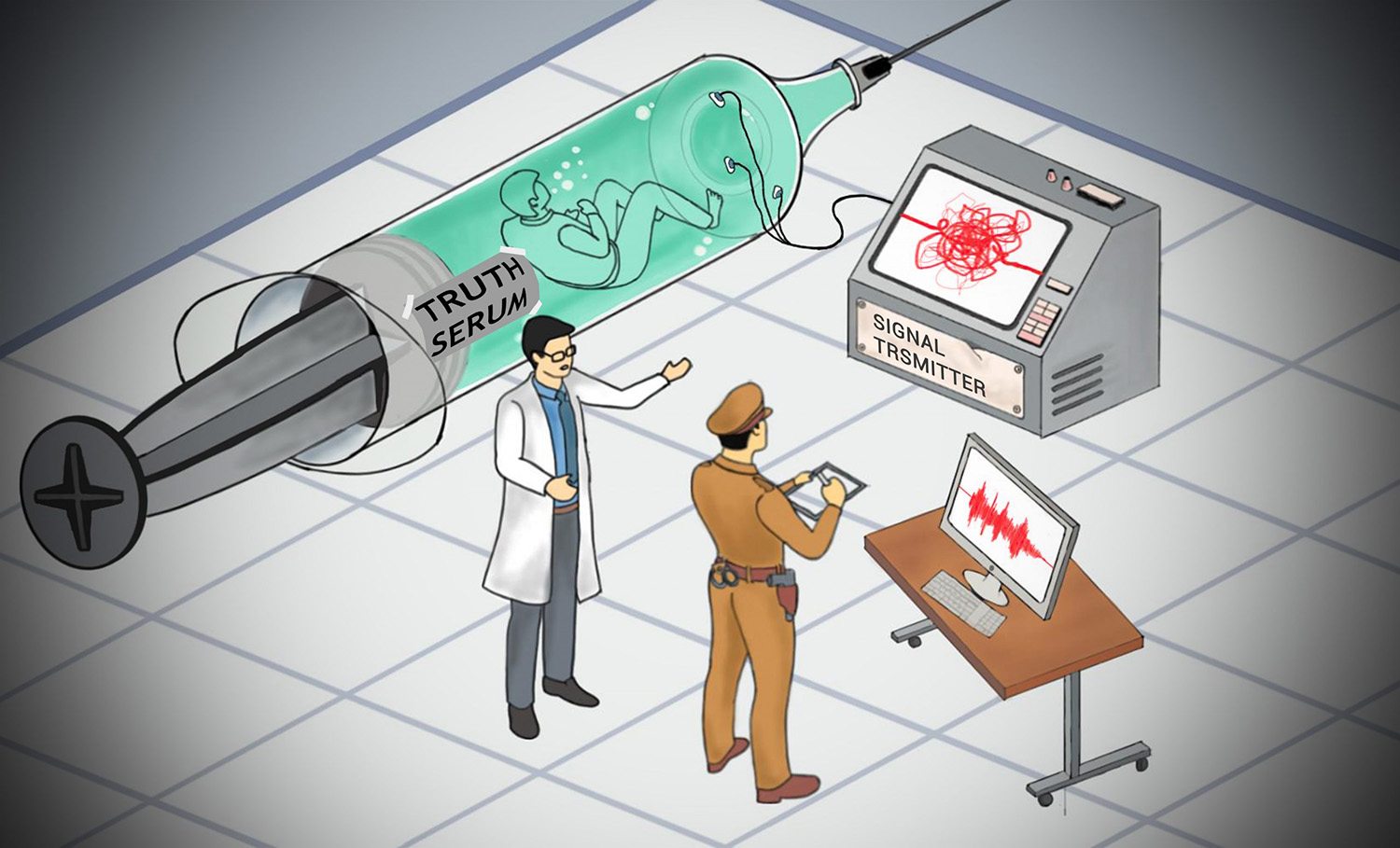Skip to the content
Narco Test
- A psychopath suspected of raping and killing his live-in spouse has been subjected to a narco test by Delhi Police, which was approved by a Saket, New Delhi, court.
- A substance called sodium pentothal is injected into the body of the suspect during a “narco” or narcoanalysis test.
- This puts the defendant in a hypnotic or drugged state, which suppresses their imagination.
- The accused is believed to be incapable of lying during this hypnotic condition and is supposed to reveal only accurate information.
- A fast-acting, short-acting anaesthetic called sodium pentothal or sodium thiopental is used in higher doses to sedate patients during surgery.
- It is a member of the barbiturate family of drugs, which have depressant effects on the central nervous system.
History
- The medicine is frequently referred to as a “truth serum” since it is thought to make the individual less determined to lie.
- During World War II, it is rumoured that intelligence agents employed it.
- motives for using such tests
- The use of these tests in investigations has increased recently. They are sometimes viewed as a “softer alternative” to torture or the “third degree” for getting the truth out of suspects.
- However, neither approach has been empirically demonstrated to have a 100% success rate, and it is still debatable in the medical community.
Restrictions
- No self-incrimination: The Bench took into account the right against self-incrimination guaranteed by Article 20(3) of the Constitution, as well as international standards on human rights.
- Affirmation of the accused: In Selvi & Ors v. State of Karnataka & Anr (2010), a Supreme Court bench that included the then Chief Justice of India held that lie detector tests should only be used “with the accused’s agreement.” The court ruled that the subject’s consent must be documented in front of a judicial magistrate.
- Legal help for such convicts: Those who volunteer must have access to a lawyer, and the police and the lawyer must explain the test’s medical, emotional, and legal ramifications to them.
- regulations in effect: It stated that full adherence to the National Human Rights Commission’s 2000 publication, “Guidelines for the Administration of a Polygraph Test on an Accused,” was required.
Results of these tests: Can they be considered ‘Confessions’?
- Not a confession: Because those who have taken drugs to induce them cannot choose how they respond to queries.
- Assumed as evidence: Any information or material later found with the aid of such a willingly taken test, however, may be accepted as evidence.
- Encourages investigation During the test, it discloses the location of, instance, a tangible piece of evidence (which is frequently something similar to a murder weapon).

